Merli Süvari is the captain of team Estonia.
She’ll play her third WFC in December, after having joined the 2009 and 2017 edition. We interviewed her:
You play at Sparta Spordiselts, how is the season going?
The Estonian women’s league only has three teams this season and we’re currently in second place. All we really need to do is hold that position to secure our place in the superfinal in April. Then, in that one decisive match, go all in!
Are you forward in both your club and in team Estonia, or does your position differ?
I play center in Sparta Spordiselts and center or left/right wing in the national team, so it’s pretty much the same.
You qualified in a big group with Czech Republic, Poland, Italy, and Belgium. How were these games?
Our first match was against Czech Republic. I think we played a really good, disciplined game for 40 minutes (just like against Switzerland at WFCQ 2017), but lost focus, speed, discipline, and a lot of goals in the third period. They were just as strong as we expected, but we did manage to score three goals from counters and free shots.
Poland was tough. We were hoping for more, but they were stronger, faster and dominated us in one-on-one situations. The score was 7-1 and our only goal came from a penalty shot in the last minute. I think they’ll be awesome at WFC.
Since our goal difference after the first two matches was -13, we needed to score a ton of goals in our remaining matches. The results were 13-1 and 9-1 in our favor, giving us a good enough goal difference among the 3rd place teams in the European groups, and securing us a place at WFC.
“We had a seminar about mental preparation and focusing. Some of the exercises we did were brilliant.”
(Article continues below photo)

You have experience from the WFC 2009 and 2017, and the WFCQ’s 2007, 2009, 2013, and 2017. What will you bring from these games to the WFC 2019?
I was unable to attend the WFCQ’s in 2011 and 2015, but I remember the 2013 tournament in Latvia. At that WFCQ, we started well, beating Italy and drawing against Denmark, and then we had our key match against Germany. The game didn’t play out in our favor. We had some misfortune that still, after six years, stings. We lost 1-4 and that cost us the chance to qualify. Our two remaining matches were against Slovakia and Latvia, but both teams were so much stronger than us.
We still have many of our key players from 2017 and even from 2009, plus some brilliant young talent. All in all, we have an excellent team. What we need to improve on is our focus: staying disciplined throughout the match, whatever the score, or time remaining on the clock.
What are your goals for the group stage, in which you meet Norway, Japan, and Denmark?
Our goal is to place top 2 in the group. That means beating at least two of our three opponents.
We have a group of death with both Norway and Denmark ranking top 10 in the world, but I say bring it on.
(Article continues below photo)

Does it bring pressure being the captain? And how do you want to help the team?
I don’t feel pressure, just pride, and joy. Although it is a kind of an obligation with meetings and other responsibilities, I still think it gives more than it takes.
I hope I can say or do things that are encouraging to my teammates; sometimes all it takes is cracking a joke to ease all our nerves.
How is your preparation for the WFC?
We’ve followed the same routine as in the previous years. We had training camps in Estonia and Finland, played at Latvian Open and took part in the Latvian league. On top of that, we’ve done fitness training at our clubs. We did do something new this time – we had a seminar about mental preparation and focusing. Some of the exercises we did were brilliant.
My personal regime in addition to the national team preparation has been orienteering 1-2 times per week and cycling to work (23 km per day). I’ve come to realize that sometimes less is more, so I try to make time to just relax and do some stretching.
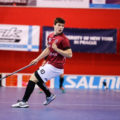
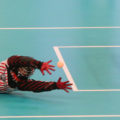

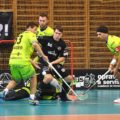

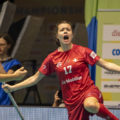


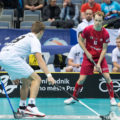
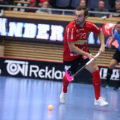
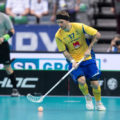
No Comments
Leave a comment Cancel